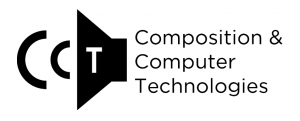UVA invites applications for its Ph.D. in Composition and Computer Technologies.
- For requirements/coursework, see CCT Ph.D. Chronology.
- For forms, visit the Graduate Forms page.

The University of Virginia Department of Music's Composition and Computer Technologies (CCT) program emphasizes the integration of acoustic, electric, and computer-based composition, considered as part of a diverse multimedia and interdisciplinary 21st Century field of art, design, and music. UVA Music faculty, including Matthew Burtner, Ted Coffey, Luke Dahl, Noel Lobley, A.D. Carson, Leah Reid, and I-Jen Fang, along with CCT Technical Director Alex Christie, collaborate to build a unique climate of creative and technical research. In addition to making original compositions and sound art works, students have the opportunity to create their own new technologies and become involved with on-going CCT research groups. Current work involves multichannel digital audio composition, improvisation, motion capture research, music for dance, installation art, songwriting, mobile app development, new media opera, video game design, vocal and chamber music composition, ecoacoustics, and the creation of new interfaces for musical expression.
The CCT Program develops and maintains a number of advanced computer music and multimedia research facilities, including the Virginia Center for Computer Music (VCCM), the Jefferson Starship Recording Studio, the Music Interactions Lab (MIL), and the Wilson Interdisciplinary Maker Space (WIMS). CCT also works closely with a number of local venues and galleries to bring original CCT work into the community.
Compositions by CCT composers are performed by visiting ensembles, faculty performers, and our ensembles-in-residence: the New Music Ensemble, Percussion Ensemble, Mobile Interactive Computer Ensemble (MICE), and others. Recent visiting groups playing graduate student compositions include Loadbang, Meehan/Perkins, Dither, Da Capo Chamber Players, JACK Quartet, Talujon Percussion Quartet, and the Relache and Verge Ensembles. New music from CCT is presented annually at the Digitalis and Technosonics Festivals. The Music Department also brings exciting scholars, technologists and artists to work with graduate students. Recent visitors have included Philip Glass, Betsey Biggs, Ichiro Fujinaga, Paul Lansky, Jon Appleton, Mamadou Diabate, Ko Umezaki, Brenda Hutchinson, John Petrucelli, Chris Chafe, George Lewis, and others.
Program Details
This program emphasizes the study and integration of acoustic and computer-based music composition, with ample opportunities in multimedia. Students work with individual faculty and participate in seminars that develop analytical, critical, theoretical, and technological approaches. Computer-based and multimedia projects are supported by the Virginia Center for Computer Music (VCCM), which houses a wide variety of commercial and in-house software and hardware. Annual residencies by professional ensembles provide professional performance opportunities, and annual composer concerts provide forums for new work. Students also pursue research projects such as the development of software for interactive dance and internet-based art, and have been well represented in national and international conferences.
The Ph.D. requires 54 credits of course work, up to 18 credits of dissertation research, and successful completion of a dissertation project. Students who successfully complete two years (36 credits) of course work and the projects appropriate to their concentration can apply for an en route M.A. at the end of their second year. Those entering with an M.A. degree may petition the department's graduate committee to transfer up to 24 graduate credits.
Students ordinarily register for private composition instruction for 6 semesters, changing instructor each year in order to draw upon varied approaches. During the first two years, students normally take two seminars per semester in addition to composition lessons, including at least one semester of MUSI 7547 Materials of Contemporary Music, and two semesters of digital media, such as MUSI 7540 Computer Sound Generation and Spatial Processing and 7543 Sound Studio. Other seminars may be chosen from music or other areas of interest, such as cognitive science, computer science, or philosophy. All students must demonstrate proficiency in one foreign or computer language.
During each of the first two years, students create a substantial piece to be performed in the spring semester. During the second year, they also produce a critical or analytical research paper based on a seminar project. Successful completion of these first- and second-year projects is required for continuation in the program. By the end of the third year, students must pass a written qualifying examination showing their capacity for research and teaching. The examination covers three fields chosen in consultation with the student's advisor and examination committee. Following passage of the qualifying examination and all other degree requirements, students begin work on the dissertation, which consists of an extended composition for acoustic, electroacoustic, or digital media, as well as an essay appropriate for publication as an article. The completed projects are defended in a public examination before a committee of four faculty, at least one of whom will be from another department.
- For requirements/coursework, see CCT Ph.D. Chronology.
- For forms, visit the Graduate Forms page.

The information contained on this website is for informational purposes only. The Undergraduate Record and Graduate Record represent the official repository for academic program requirements. These publications may be found at http://records.ureg.virginia.edu/index.php.